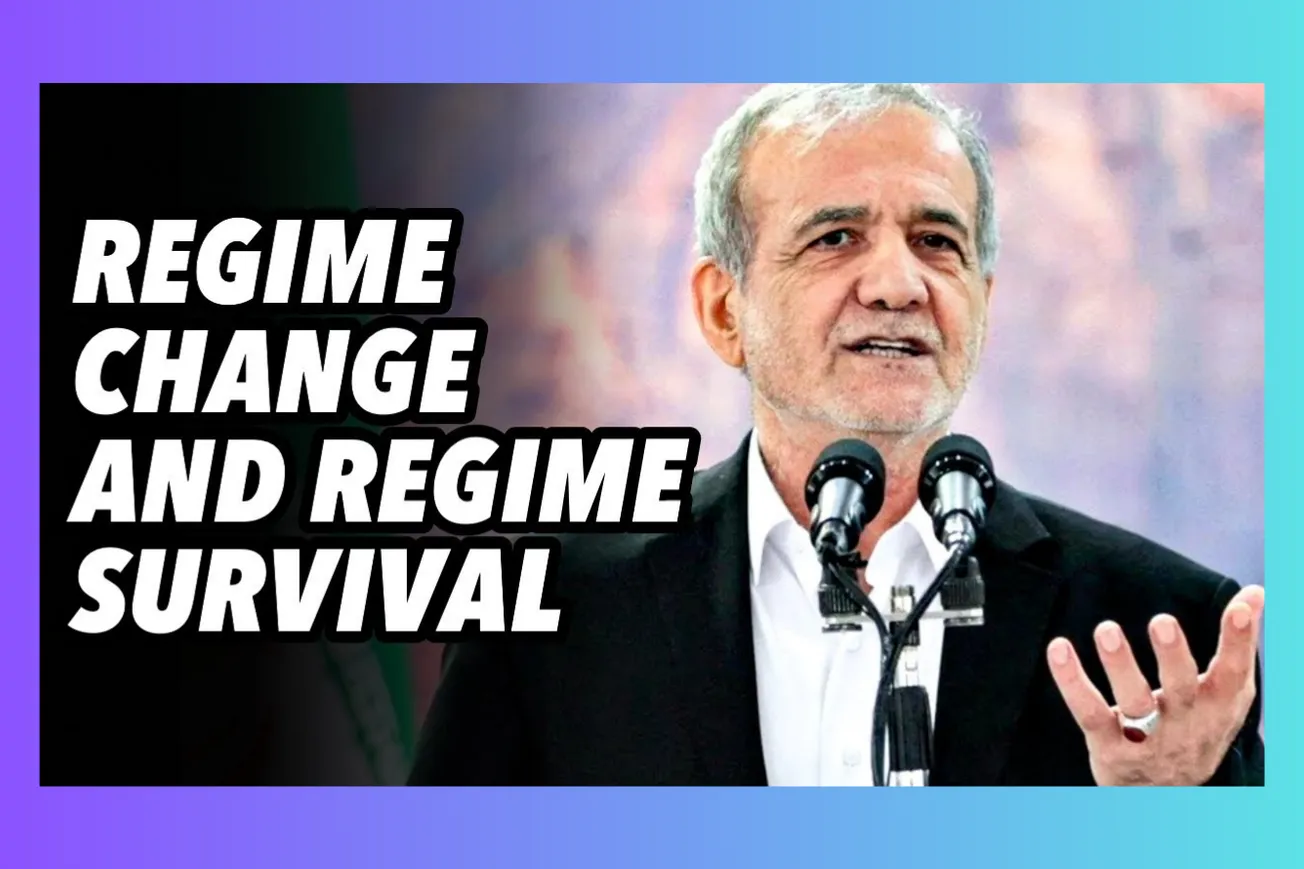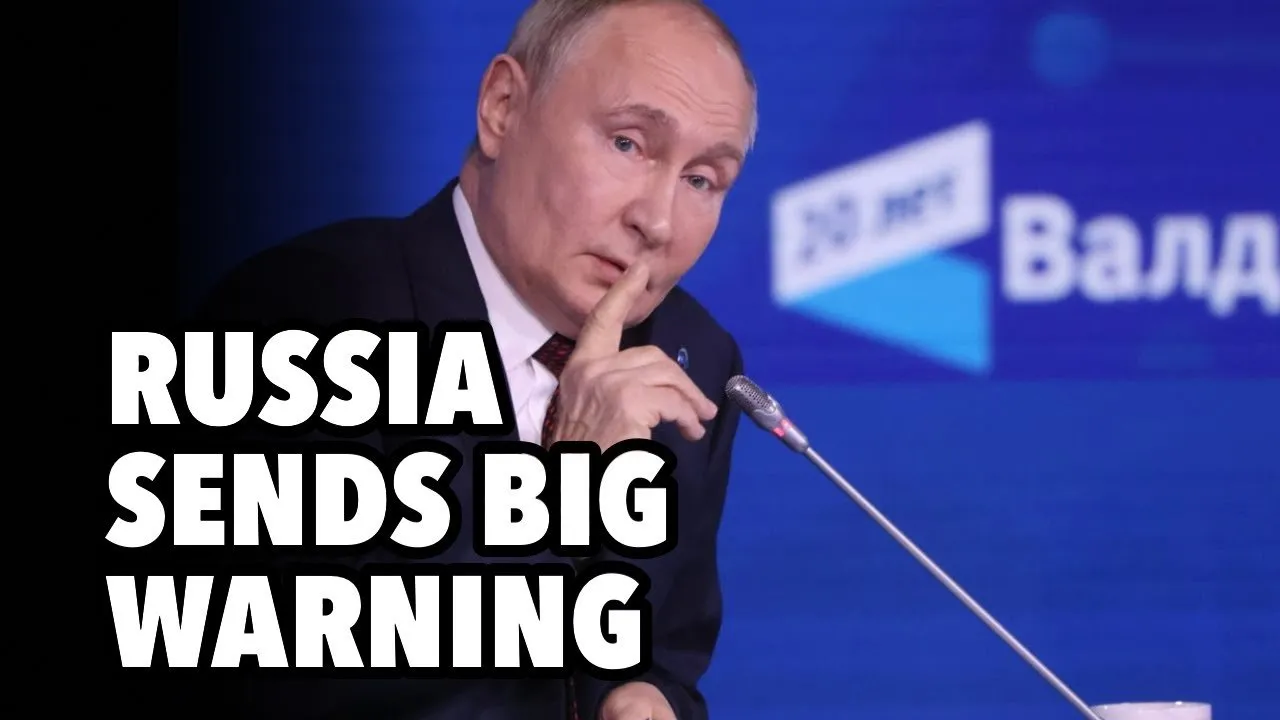Table of Contents
As diplomatic negotiations collapse and military strikes escalate, a pattern emerges of strategic manipulation that has trapped the Trump administration in exactly the kind of Middle East conflict it claimed to want to avoid.
Key Takeaways
- Israeli strikes on Iran effectively ended months of promising diplomatic negotiations between the US and Iranian officials
- Trump's administration claims no involvement in Israeli operations while simultaneously promising to defend Israel against retaliation
- The pattern suggests either deliberate duplicity or stunning incompetence in US foreign policy coordination
- Netanyahu appears to have successfully maneuvered Trump into a position where escalation becomes inevitable
- Iran faces a strategic choice between immediate retaliation and focusing on regime survival against foreign intervention
- The nuclear question looms larger as Iran may conclude that only nuclear weapons can guarantee regime security
- Trump's negotiating approach treats international diplomacy like real estate deals, seeking leverage through pressure rather than building trust
- A straightforward diplomatic solution existed: JCPOA with no time limits and Russian guarantees
- The MAGA base shows signs of fracturing over foreign military involvement, particularly regarding Iran
- Historical precedent suggests that decapitation strikes often strengthen rather than weaken targeted organizations
The Collapse of Diplomacy: From Progress to Warfare
Just six weeks ago, both US and Iranian officials were describing their negotiations in remarkably positive terms. The sixth round of talks between US envoy Elliott Abrams and Iranian Foreign Minister Abbas Araghchi had created genuine momentum. Both sides publicly stated that discussions were "moving in a very positive direction."
Then everything changed. Within weeks, we've gone from diplomatic optimism to military strikes, with Israeli aircraft targeting Iranian nuclear facilities and air defense systems. The speed of this collapse isn't accidental - it represents the culmination of a year-long strategy that began with Israel's attack on Iranian embassy buildings in Damascus last April.
What's fascinating is the methodical escalation. Each Israeli action was carefully calibrated to provoke Iranian responses that could justify further escalation. The assassination of Hamas leaders, the systematic dismantling of Hezbollah leadership, the pager attacks - all of these created a chain of retaliations that made larger conflict seem inevitable.
- Netanyahu's Congress speech last year explicitly laid out an agenda of confronting all regional adversaries simultaneously
- The transition period between Biden and Trump created opportunities for fait accompli operations
- Each escalatory step was presented as defensive while strategically advancing toward broader conflict
- The timing suggests careful coordination to present Trump with limited options upon taking office
The most telling aspect is how quickly diplomatic progress evaporated. When negotiations are genuinely advancing, both parties invest in protecting that progress. The Iranian willingness to continue talks despite Israeli provocations suggests they saw real value in the diplomatic track. The sudden abandonment indicates external pressure overcame diplomatic momentum.
Trump's Impossible Position: Caught Between Promises and Reality
Here's where Trump's situation becomes almost comically impossible to sustain. His administration maintains two contradictory positions simultaneously: complete non-involvement in Israeli operations and absolute commitment to defending Israel against retaliation.
The absurdity becomes clear when you consider the timeline. Trump claims his administration had no knowledge of Ukrainian operations that took 18 months to plan, despite massive US intelligence presence in Ukraine. Then he admits knowing about Israeli operations against Iran but insists the US bears no responsibility for them.
Either narrative strains credibility to the breaking point. If Trump genuinely doesn't know about major military operations involving US allies, his administration is incompetent at a dangerous level. If he does know but pretends otherwise, he's conducting foreign policy through transparent deception that fools no one.
- The Ukrainian airfield strikes allegedly surprised Trump despite 18 months of planning and extensive US intelligence presence
- Israeli operations supposedly occurred without US involvement despite total American intelligence integration with Israeli forces
- Trump's public promise to protect Israel contradicts claims of non-involvement in Israeli operations
- The administration appears to believe it can have leverage through escalation while maintaining plausible deniability
What's particularly damaging is how this approach treats international counterparts as fools. Iran's leadership understands perfectly well that Israel cannot conduct major military operations without at minimum US acquiescence. Trump's claim that negotiations can continue while Israel bombs Iranian facilities insults Iranian intelligence and destroys any remaining trust.
Netanyahu's Masterclass: The Perfect Trap
From Netanyahu's perspective, this represents strategic brilliance. He's maneuvered Trump into a position where every option leads toward greater US involvement in Middle East conflicts.
The trap works because it exploits Trump's fundamental misunderstanding of international negotiations. Trump approaches diplomacy like real estate deals, seeking leverage through pressure and dramatic gestures. Netanyahu provided him with exactly what he thought he wanted - apparent leverage over Iran through Israeli military pressure.
But international relations don't work like property negotiations. When you bomb someone's country, you can't simultaneously claim you want to negotiate in good faith. The leverage Trump thought he was gaining actually eliminated his negotiating position entirely.
- Netanyahu presented escalation as a way to gain negotiating leverage rather than destroy negotiations
- Trump's real estate background made him susceptible to arguments about pressure and dramatic gestures
- The timing gave Trump limited ability to reverse course without appearing weak or inconsistent
- Each step of escalation makes the next step seem more reasonable and necessary
Now Trump faces the exact scenario Netanyahu wanted: Iran either collapses quickly, solving Israel's regional problem, or becomes more hardline and militaristic, justifying further Israeli action with US support. Either outcome advances Israeli strategic interests while potentially trapping the US in another Middle East conflict.
The political trap is equally sophisticated. Trump can't easily abandon Israel without facing massive domestic political pressure from neoconservatives and pro-Israel lobbies. But continuing support risks fragmenting his MAGA base, which elected him partly to avoid foreign military adventures.
Iran's Strategic Dilemma: Retaliation vs. Regime Survival
Iran now faces the kind of strategic decision that defines nations for generations. The immediate impulse toward retaliation for Israeli strikes must be weighed against the larger threat of regime change operations.
The smart play involves thinking like Putin during moments of strategic pressure - focus primarily on regime survival rather than immediate tactical responses. This doesn't mean accepting attacks passively, but it does mean prioritizing long-term stability over short-term satisfaction.
Iran's leadership likely recognizes the deeper game being played. The strikes aren't just military operations - they're part of a broader campaign to either topple the regime or provoke responses that justify regime change operations. Understanding this changes the calculation entirely.
- Intelligence penetration suggests Iran faces systematic efforts to decapitate leadership and military capabilities
- The pattern resembles successful Israeli operations against Hezbollah leadership, though those ultimately failed to destroy the organization
- Regime survival requires both defending against immediate threats and maintaining domestic legitimacy
- International isolation increases dependence on allies like Russia and China who prefer regional stability
The nuclear question becomes central to this calculation. Iran has consistently maintained that it doesn't seek nuclear weapons, but Israeli strikes create new incentives. If you're going to be bombed for having a nuclear program anyway, the logic of actually developing weapons becomes more compelling.
North Korea provides the obvious model. Kim Jong-un's regime enjoys security precisely because it developed nuclear capabilities. The lesson isn't lost on Iranian leadership - nuclear weapons might be the only guarantee against foreign regime change operations.
The Nuclear Acceleration: When Restraint Becomes Weakness
Here's the most dangerous aspect of the current trajectory. Iran has spent decades demonstrating restraint on nuclear weapons development, accepting international monitoring and limitations in exchange for sanctions relief and normalized relations.
That restraint now appears to have bought them nothing. They're being bombed and threatened with regime change despite maintaining a civilian nuclear program under international oversight. The voices within Iran arguing for nuclear weapons development suddenly have much stronger arguments.
The logic becomes depressingly simple: if you're going to be treated as a nuclear threat regardless of your actual capabilities, you might as well develop those capabilities to defend yourself. This represents exactly the outcome that competent diplomacy should have prevented.
- Iran possesses the technical capability and enriched uranium necessary for nuclear weapons development
- International monitoring and voluntary restrictions have provided no protection against military attack
- The North Korean model demonstrates that nuclear weapons can guarantee regime survival
- Regional precedents suggest that conventional military superiority offers insufficient protection
There's historical precedent for this dynamic. The 1984 prediction that Iran was "a few years away" from nuclear weapons shows how long this threat has been used to justify pressure. Thirty years later, Iran still hasn't developed nuclear weapons, but the threats and sanctions continue.
From Iran's perspective, this demonstrates that restraint accomplishes nothing. No amount of compliance or cooperation seems to satisfy their adversaries. Nuclear weapons development might represent the only path to the security that diplomatic agreements have failed to provide.
Trump's Negotiating Incompetence: Real Estate vs. Statecraft
What's become painfully clear is that Trump's much-vaunted negotiating skills don't translate to international relations. His approach - seeking leverage through pressure, making dramatic demands, threatening to walk away - works in business contexts where relationships are transactional and alternatives exist.
International relations operate under completely different dynamics. Countries can't simply walk away from geographic neighbors or historical relationships. Trust, once broken, takes decades to rebuild. Military pressure often strengthens rather than weakens targeted regimes by rallying domestic support.
The Iran situation perfectly illustrates these failures. A straightforward diplomatic solution existed: restore the JCPOA with no time limits and Russian guarantees. Iran had already signaled willingness to accept permanent restrictions on nuclear development in exchange for sanctions relief and security guarantees.
- All parties shared the stated goal of preventing Iranian nuclear weapons development
- Russia offered to provide security guarantees that would have made violations prohibitively costly
- Iran's consistent position supported civilian nuclear power while forswearing weapons development
- The framework existed to resolve the issue permanently through patient, professional diplomacy
Instead, Trump chose to seek leverage through Israeli military pressure, apparently believing this would force Iranian concessions. The result eliminated any possibility of negotiations while potentially accelerating exactly the nuclear development everyone claimed to want to prevent.
This represents perhaps the worst possible outcome - destroying diplomatic solutions while creating incentives for the very behavior you're trying to prevent.
The MAGA Base Fracture: Foreign Wars vs. America First
One of the most significant political implications involves the growing tension within Trump's coalition over foreign military involvement. The MAGA movement's core appeal included ending "forever wars" and focusing on domestic priorities rather than foreign adventures.
The Iran escalation creates exactly the kind of foreign entanglement that Trump voters thought they were rejecting. Tucker Carlson's public warnings about Trump's meeting with Mark Levin signal growing concern within the movement's media infrastructure.
Marjorie Taylor Greene's statements prove particularly telling. Despite her generally hardline positions, she explicitly opposes US involvement in Iran conflicts, claiming to speak for the grassroots base. Tulsi Gabbard's warnings about warmongers leading America toward world war echo similar concerns.
- The anti-war component of MAGA support conflicts with pro-Israel foreign policy pressure
- Trump's core supporters elected him partly to avoid exactly these kinds of Middle East conflicts
- Media figures like Tucker Carlson represent significant influence over the movement's direction
- Political figures like MTG and Tulsi Gabbard provide alternative voices within the coalition
If this trajectory continues toward larger conflict, Trump may find his political base fracturing between those who prioritize America First principles and those who support Israeli operations regardless of consequences.
The irony is striking. Trump may have avoided the trap of Ukrainian escalation only to walk directly into a Middle East conflict that his base opposes even more strongly.
Intelligence Failures: The Cost of Penetration
Iran's response to this crisis is complicated by what appears to be massive intelligence penetration of their security apparatus. The successful assassinations of both the IRGC head and the army chief of staff suggest systematic compromise of Iranian security.
This creates a dual challenge: defending against external attack while identifying and eliminating internal security breaches. The scale of penetration appears comparable to what Israel achieved against Hezbollah, though Hezbollah ultimately survived its leadership decimation.
The intelligence war dimensions may be more important than the military strikes themselves. If Israel can consistently eliminate Iranian leadership and compromise their security planning, it becomes much easier to justify claims that Iran represents an imminent threat requiring preemptive action.
- Multiple high-level assassinations suggest systematic rather than opportunistic intelligence penetration
- The pattern resembles Israeli operations against Hezbollah that ultimately failed to destroy the organization
- Intelligence compromises make both defensive planning and retaliation more difficult
- Security apparatus rebuilding requires time that military pressure may not allow
However, history suggests that organizations with genuine popular support and ideological coherence can survive even extensive leadership losses. The question becomes whether Iran's regime possesses sufficient institutional depth and domestic legitimacy to weather this kind of systematic attack.
The Erdogan Parallel: Playing All Sides
Perhaps the most intriguing development involves Turkey's role in facilitating weapons transfers back to Hezbollah despite publicly supporting Syrian transitions. This represents classic Erdogan strategy - maintaining relationships with all parties while advancing Turkish interests.
The recent missile strikes on Israel from Syrian territory create additional complications. Either Syria's new leadership has lost control over armed factions, or they're deliberately maintaining pressure on Israel while publicly supporting different policies.
This dynamic perfectly illustrates Middle Eastern complexity that Trump's approach seems to consistently underestimate. Countries maintain multiple, sometimes contradictory relationships while pursuing long-term strategic interests that don't always align with stated policies.
- Turkey facilitates Iranian weapons transfers while maintaining relations with all regional parties
- Syrian leadership may be losing control or deliberately maintaining strategic ambiguity
- Regional powers prioritize their own interests over ideological consistency
- The complexity makes simple leverage-based approaches likely to fail
For Iran, this suggests that regional relationships remain more fluid than American policy seems to recognize. Even apparent defeats like Syrian government collapse don't necessarily eliminate Iranian influence or options.
The Path Not Taken: What Successful Diplomacy Looked Like
The tragedy of this situation is that a diplomatic solution was readily available and probably achievable. The JCPOA provided a proven framework that had successfully limited Iranian nuclear development while providing sanctions relief.
The obvious improvements were also clear: remove time limits to make restrictions permanent, and add Russian guarantees to ensure compliance. Russia had strong incentives to prevent Iranian nuclear weapons development and the credibility to enforce agreements.
Iran had consistently signaled willingness to accept permanent restrictions in exchange for permanent sanctions relief. The US goal of preventing nuclear weapons development aligned perfectly with Iranian stated positions. Even the technical details had been worked out through years of negotiations.
- The JCPOA framework had proven effective at limiting Iranian nuclear development
- Russia's guarantees would have provided enforcement mechanisms that pure international monitoring lacked
- Iran's positions supported permanent restrictions in exchange for sanctions relief
- All parties shared the stated goal of preventing nuclear weapons development
What prevented success wasn't technical complexity or incompatible interests, but the political decision to seek leverage through pressure rather than building trust through patient diplomacy.
The current trajectory represents perhaps the worst possible alternative - destroying diplomatic solutions while creating incentives for exactly the nuclear development everyone claimed to want to prevent.
This case study in diplomatic failure may define Middle Eastern relations for the next generation, with consequences extending far beyond the immediate parties involved.





